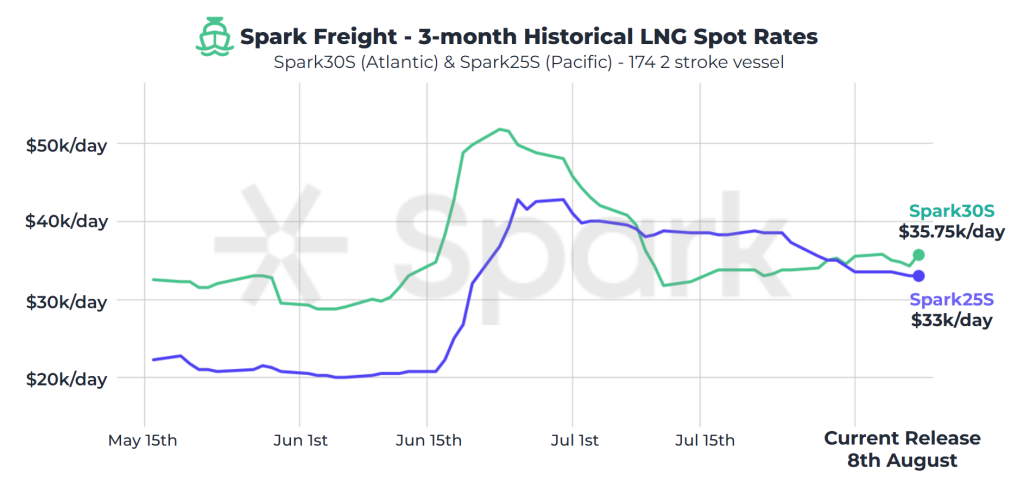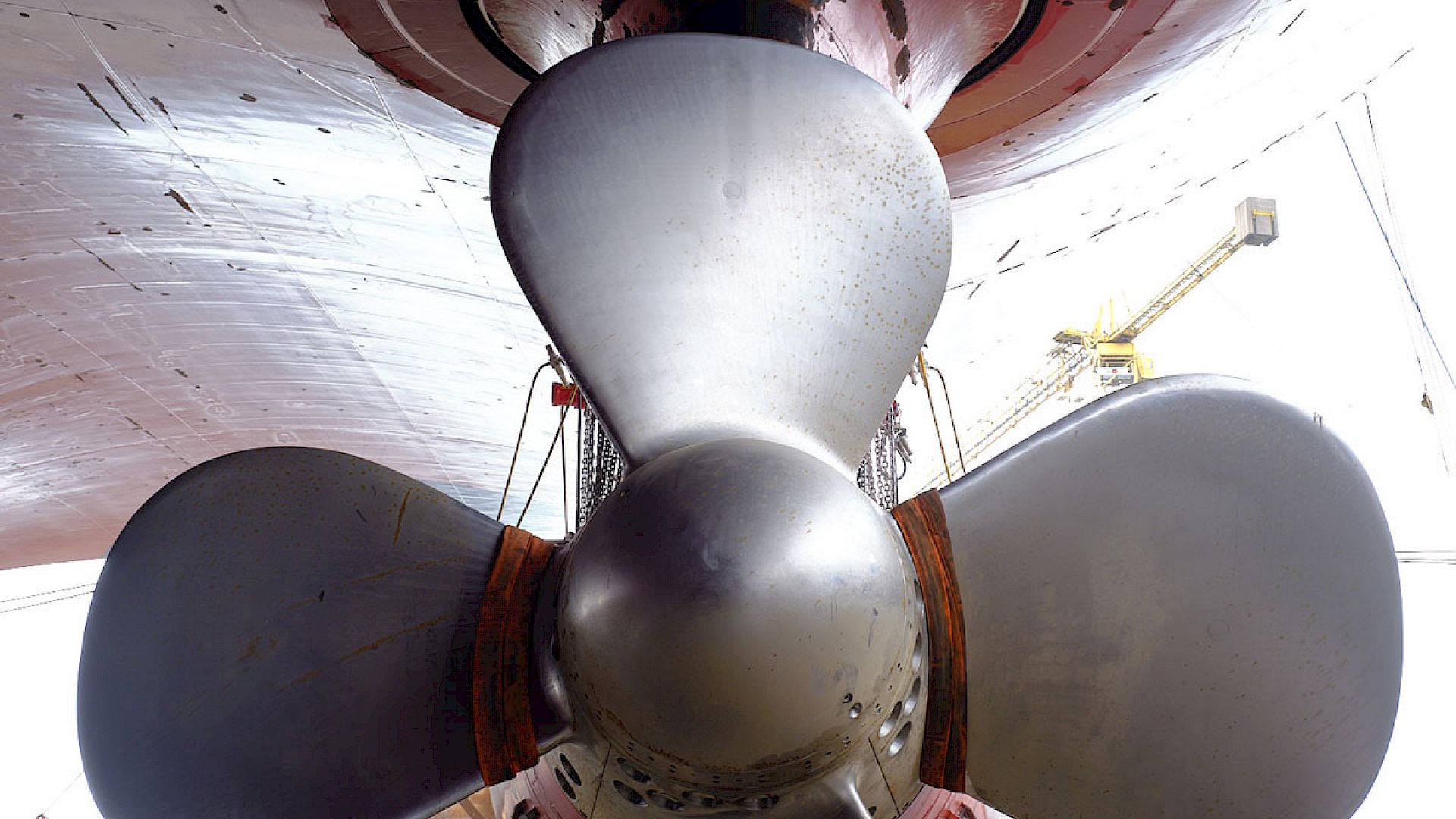This story requires a subscription
This includes a single user license.
Spark’s data lead, Qasim Afghan, told LNG Prime on Friday that global LNG freight rates “have remained relatively steady this week, with Spark30S (Atlantic) pricing in at $35,750 per day and Spark25S (Pacific) at $33,000 per day.

Last week, Atlantic rates increased by $1,750, pricing in at $35,500 per day, whilst Pacific rates dropped for a fifth week running, decreasing by $3,750 per day to $33,500 per day.
European prices drop
In Europe, the SparkNWE DES LNG dropped compared to last week.
“The SparkNWE DES LNG front month price for September dropped by $0.610 to $10.764/MMBtu, whilst the basis to the TTF remains steady at $0.460/MMBtu,” Afghan said.
Moreover, “the US front-month arb to NE-Asia (via the Cape of Good Hope) narrowed by $0.101 this week, pricing in at -$0.075/MMBtu and now only marginally incentivising US cargoes to deliver to Europe,” he said.
“The US front-month arb (via COGH) has now predominantly been pointing to Europe for over a year, marking the first time this has happened since 2022. Conversely, the US front-month arb to NE-Asia via Panama is now once again pointing to Asia, assessed at -$0.070/MMBtu,” Afghan said.

Data by Gas Infrastructure Europe (GIE) shows that volumes in gas storages in the EU continued to rise and were 70.67 percent full on August 6.
Gas storages were 68.34 percent full on July 30, and 86.41 percent full on August 6, 2024.
JKM
In Asia, JKM, the price for LNG cargoes delivered to Northeast Asia in September 2025 settled at $11.940/MMBtu on Thursday.
Last week, JKM for September settled at 12/MMBtu on Friday, August 1.
Front-month JKM rose slightly to 12.005/MMBtu on Monday. It dropped to 11.990/MMBtu on Tuesday and $11.930/MMBtu on Wednesday.
State-run Japan Organization for Metals and Energy Security (Jogmec) said in a report earlier this week that JKM for last week “rose to low-$12s/MMBtu on August 1 from mid-$11s/MBtu the previous weekend.”
“JKM showed an upward trend throughout the week, supported by forecasts of continued extreme heat. Geopolitical factors such as anticipated tightening of sanctions against Russia by the Trump administration also contributed to the price increase from the previous week,” it said.

